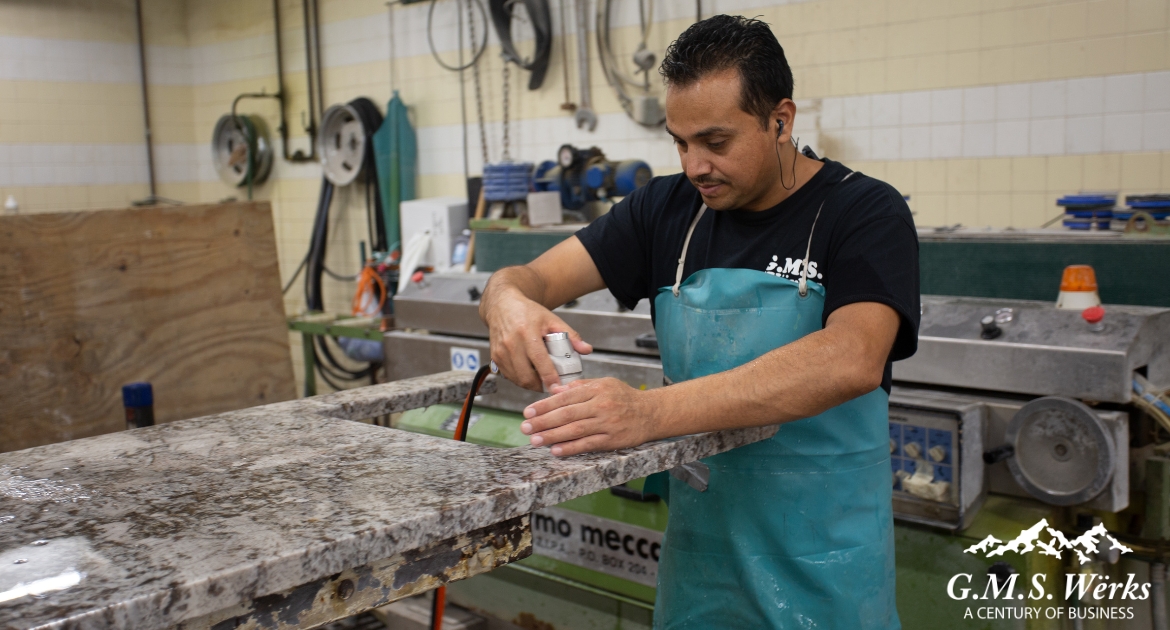-
4225 Florence Blvd
-
Appointments Recommended
Mon - Fri: 8:00am - 4:00pm
-
Schedule Your Appointment:
(402) 451-3400 - Request Quote
Mon - Fri: 8:00am - 4:00pm

Natural stone countertops are admired for their beauty, durability, and ability to elevate a space with timeless appeal. But like all investments, they require a bit of care to ensure they remain at their best. One of the most common questions homeowners ask is: How often should natural stone be sealed?
The answer depends on the type of stone you have, how it’s used, and the kind of sealant applied. Here’s what you need to know about sealing—and resealing—your countertops.
Granite, marble, quartzite, and other natural stones are porous materials. Without protection, liquids like wine, oil, or juice can seep in and cause stains, etching, or discoloration. A good natural stone sealant acts as an invisible barrier, reducing absorption and giving you more time to clean up spills before they cause lasting damage.
Sealing also helps maintain the stone’s finish. A polished granite island, for example, will hold its shine longer when properly sealed, while marble bathroom vanities stay resistant to water marks and soap scum buildup.
While every stone is unique, most natural stone countertops should be sealed once every 1–3 years. Here are a few guidelines based on stone type:
Granite: Many granites are dense and may only need sealing every 2–3 years. Lighter-colored granite may require more frequent care.
Marble: Softer and more porous than granite, marble often needs annual sealing to resist stains.
Quartzite: Durable but still porous, quartzite benefits from sealing every 1–2 years.
Soapstone: This stone doesn’t require sealing but may be treated with mineral oil to enhance its color and finish.
If you’re not sure whether it’s time to reseal, try the simple “water test.” Place a few drops of water on the countertop. If the water beads up, your seal is intact. If it soaks in within minutes or darkens the stone, it’s time to reapply a natural stone sealant.
Not all sealants are created equal. Impregnating sealers, which penetrate the surface, tend to provide longer-lasting protection compared to topical sealers that simply coat the stone. The right choice also depends on whether the stone is used in a kitchen, bathroom, or outdoor space. For example, outdoor countertops may require more frequent applications because of exposure to sun and rain.
Working with a professional installer or supplier ensures you get the right natural stone sealant for your particular surface and lifestyle.
Sealing your stone surfaces is less about following a strict schedule and more about paying attention to your countertops. Regular testing, routine cleaning, and applying a high-quality natural stone sealant when needed will keep your investment looking beautiful for decades.
At GMS Werks, we help homeowners and designers select, install, and maintain natural stone surfaces that stand the test of time. If you’re unsure about the care your countertops need, our team can guide you toward the right products and maintenance schedule for lasting results.